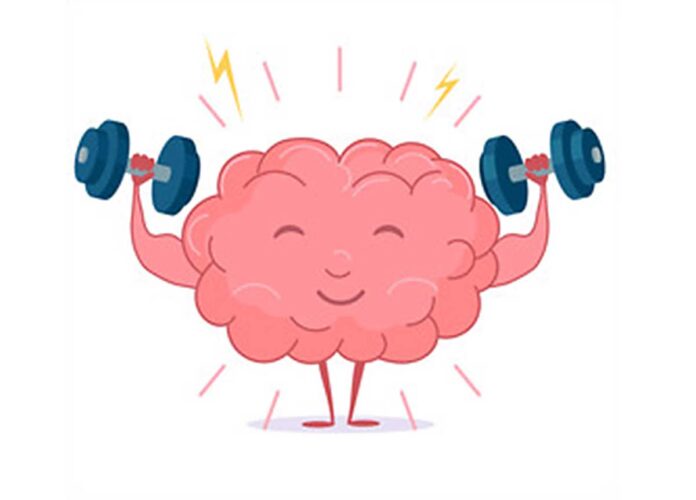As a result of the COVID-19 pandemic, we may not be getting the level of mental stimulation and connection that we otherwise would be. Many months of social distancing has made it more difficult to interact with others and enjoy some of our usual activities, including those that challenge, nurture, and engage our brains.
The circumstances of the past year require that we be more proactive about keeping our brains healthy. Our brains need exercise and care just as our bodies do! Brain health is influenced by factors including exercise, stress, mental activity, and social interaction, all of which may look differently than they did a year ago.
While we may not do them specifically for their cognitive benefit, many common hobbies do have a positive impact on our brains. Reading books and magazines, playing games, exercising, making music or art, and cooking are all activities that engage the brain. For those interested in more academic pursuits, taking an online class or learning a foreign language provides great mental stimulation.
Participating in activities that activate different senses and use different parts of the brain can also be beneficial. Cooking a new recipe, for example, requires planning, focus, following directions, and using fine motor skills, all while producing new sights, smells, and tastes. Doing a puzzle relies on sight and touch while promoting concentration, reasoning, and problem solving.
There is a large body of research demonstrating how the arts can be good for our minds. Artistic activities such as drawing, playing music, crafting, writing, and dancing are all great forms of self-expression that also provide activity for our brains. In fact, a research study from the CDC’s Healthy Brain Research Network found that older adults who danced regularly reported improvements in memory, attention, and focus. While dancing around alone in one’s apartment may feel silly, there are plenty of online dance classes and YouTube videos that can provide some guidance. Playing an instrument has been shown to have a similar effect on memory and cognitive function.
There is also evidence to suggest that meditation can play a role in promoting brain health. The National Center for Complementary and Integrative Health cites that meditation can increase the brain’s ability to process information. Meditation can also be a useful way of reducing stress, a known risk factor for cognitive decline. Meditation is also good for concentration and attention, with some studies suggesting that it can improve short-term memory. Activities that combine exercise and meditative components, such as tai chi and yoga, are also good for brain health.
Making certain lifestyle changes can also contribute to healthier brains. Exercising regularly and eating a healthy diet benefits both the body and the brain. The Alzheimer’s Association, for example, recommends regular cardiovascular exercise along with a balanced diet that is lower in fat and higher in vegetables and fruit. Drinking too much alcohol and smoking can have a negative impact on brain health, as can not getting enough sleep.
Social engagement has also been linked to better cognitive health. The Global Council on Brain Health, a collaborative from AARP, stresses that social engagement helps maintain thinking skills and reasoning abilities, while slowing cognitive decline in later life. Conversely, social isolation is associated with a heightened risk of dementia, along with several other health issues. Obviously, our abilities to remain socially engaged have been difficult during a year of social distancing. Still, finding what ways we can stay connected with our friends and loved ones is important for our emotional health, physical health, and for our brains.
Even in these difficult times, there are many resources available to help keep our brains active and engaged. The internet is full of free exercise videos, recipes, art ideas, guided meditations, classes, and resources for just about any hobby. AARP members can take advantage of “Staying Sharp” (stayingsharp.aarp.org) with interactive brain games and resources. Staying connected through video conferencing, emails, and phone calls remains extremely important for maintaining social connections.
As we approach the one-year mark since the first COVID-19 cases arrived in Pennsylvania, it remains paramount that we continue to incorporate activities and routines that keep our brains engaged, active, and healthy!
